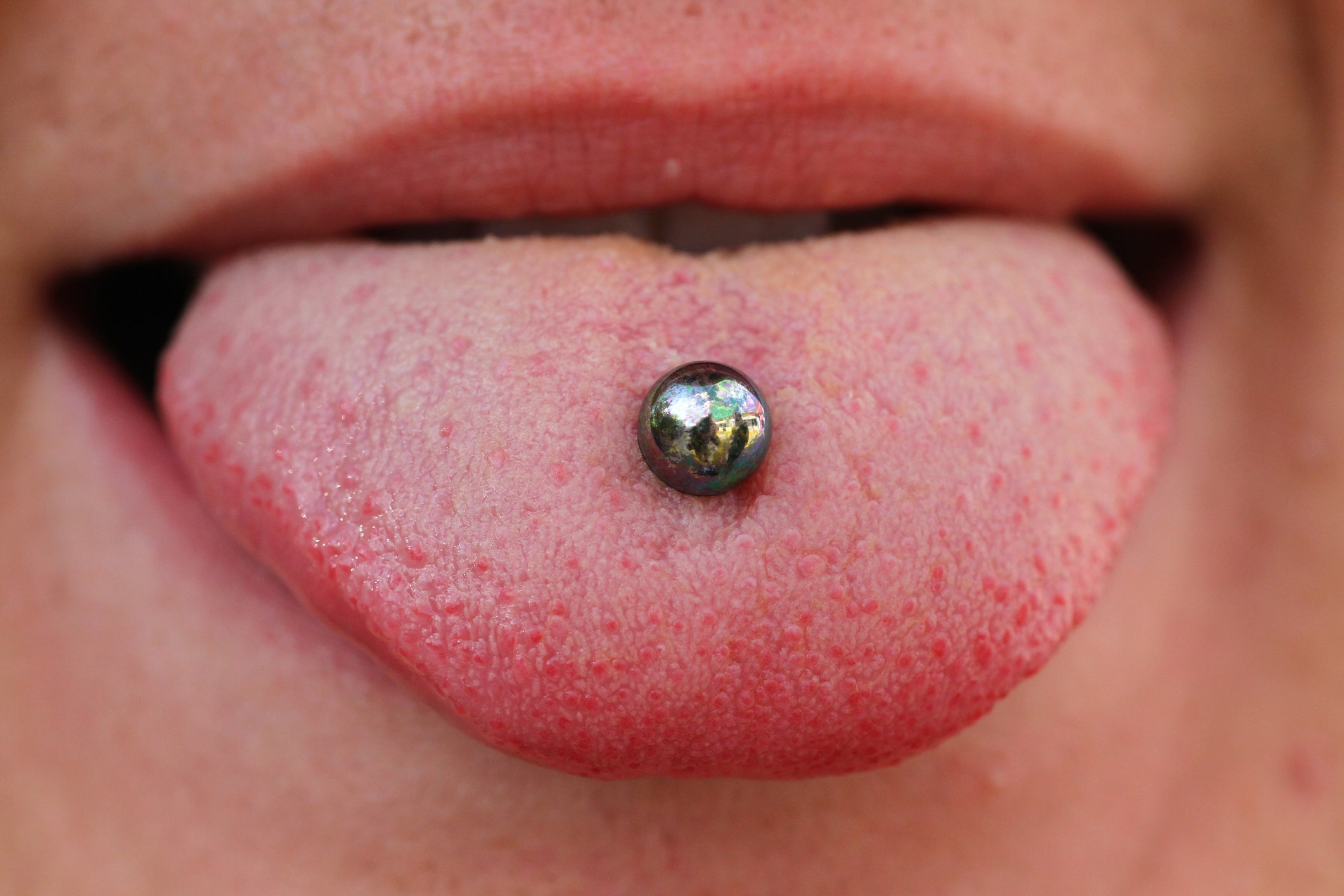How Oral Piercings Can Affect Your Dental Health

Piercings are growing ever more popular, and many people choose to express their individuality with an oral piercing. Unfortunately, cheek, tongue, and lip piercings often come with complications that can have an impact on your dental health. Before you get an oral piercing, make sure you know the risks.
Any piercing can cause an allergic reaction. You might experience pain and swelling after the procedure, or develop a skin infection that causes redness and pain or even scarring. When jewelry is accidentally ripped out, it can cause tearing and trauma, and piercings come with a risk of bloodborne diseases like Hepatitis B, Hepatitis C, and HIV. While those complications apply to all piercings, though, there are some problems that specifically occur with oral piercings. According to the American Dental Association, complications that can result from oral piercings include:
- Chipped or cracked teeth or a swollen tongue: The piercing can bump against your teeth while you talk or eat. You might even find that you sometimes bite it. When this happens, the piercing can injure your gums or crack or scratch your teeth. Your teeth may become sensitive, or you might damage your fillings. In addition, jewelry in your mouth can accumulate plaque, leading to tooth decay and cavities.
- Halitosis: It’s hard to properly clean your mouth when there’s jewelry covering part of your oral tissue. This leads to plaque bacteria and food debris building up in your mouth and causing bad breath.
- Bacterial infections: Your mouth is already a welcoming place for bacteria, because it’s so moist. Add in an incision and jewelry, and the bacteria trapped around your piercing can lead to infection, with symptoms of redness, swelling, pain, and a foul odor.
- Increased saliva: Usually, you want a good flow of saliva to wash out your mouth and prevent tooth decay. However, the excessive saliva flow that can be caused by an oral piercing can lead to the development of tartar, calcified plaque. Tartar hardens on teeth and under gums, and removing it requires a professional dental cleaning.
- Gum issues: Metal rubbing against the gums when you’re chewing, speaking, or just moving the piercing can cause gums to recede, which sometimes requires surgical correction. Piercings also raise the risk of gum disease, which can negatively impact your health and lead to tooth loss.
- Problems with dental care: Jewelry in your mouth makes it harder for your dental team to care for your oral health. It can even interfere with x rays and other diagnostic tools.
- Tissue trauma: Sometimes piercing jewelry becomes infected and must be surgically removed. You can also form scar tissue that may become large and require surgical removal.
- Changes in speech: Oral piercings can cause you to speak differently and impede your normal chewing.
- Obstructed airway: If the piercing becomes infected, you may experience breathing problems. Worse, if a piercing dislodges when you’re sleeping, speaking, or chewing, it can become lodged in the back of the throat, causing choking or airway obstruction.
- Nerve damage: After a piercing, your tongue may feel numb because of temporary nerve damage. Sometimes, though, this damage becomes permanent. This can affect your sense of taste and the movement of your mouth.
You might not realize it, but these complications are surprisingly common. While they don’t happen to everyone with oral piercings, they happen frequently enough and cause enough serious damage to be of concern. You can reduce your risk of complications, however, by being vigilant about caring for your mouth. Brush twice a day, floss, and use an alcohol-free mouthwash. Don’t play with your jewelry, stay vigilant for signs of infection, and periodically check to make sure it’s tightly secured.
If you’re looking for the perfect dentist, choose the practice that was voted best dentist in NYC! At Park 56 Dental Group, we offer pediatric, prosthodontics, endodontics, oral surgery, Invisalign®, emergency, and sedation dentistry, all at the highest level of treatment. We serve the Midtown, Central Park, Upper East Side, Park Avenue, and all surrounding Manhattan and New York areas, with a patient-centered practice that has hours to fit your schedule. Schedule your complimentary consultation today by contacting us online or calling us at (212) 826-2322.
RECENT POSTS
categories
- Uncategorized
- Cosmetic Dentistry
- Veneers
- Healthier Teeth
- Teeth Whitening
- Dental Health
- Video
- Dental Emergencies
- Invisalign
- Dental Implants
- Root Canal
- Sedation Dentistry
- Infographic
- Dental Crowns and Bridges
- Dental Anxiety
- Gum Disease
- COVID-19
- Bad Breath
- New York Dentist
- Cut out sugar
- General Dentistry
- Oral Health
- Oral Cancer
- Dry Mouth
- Gum Health
- Toothache
- Dental Sealants
- Cavities
